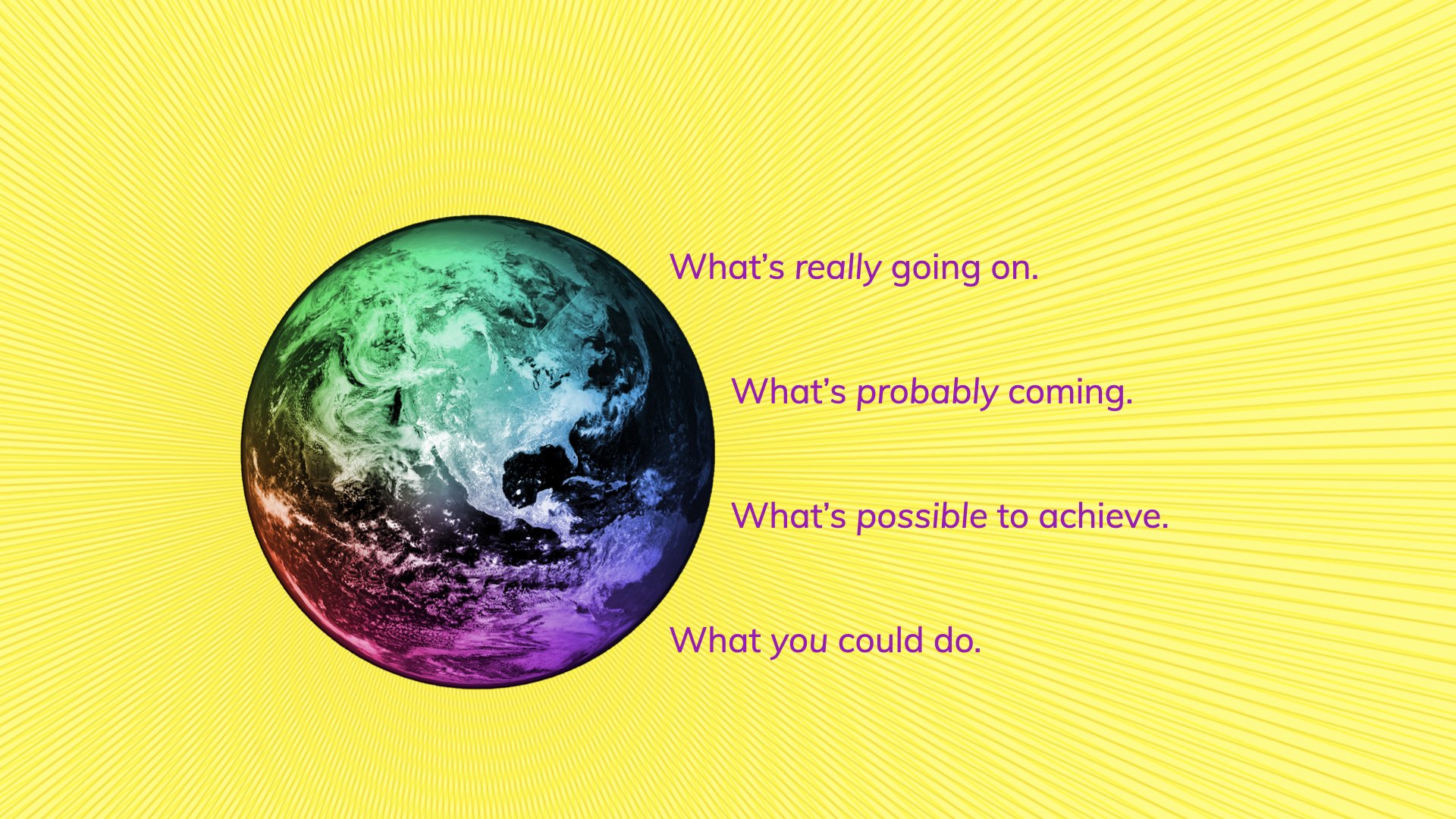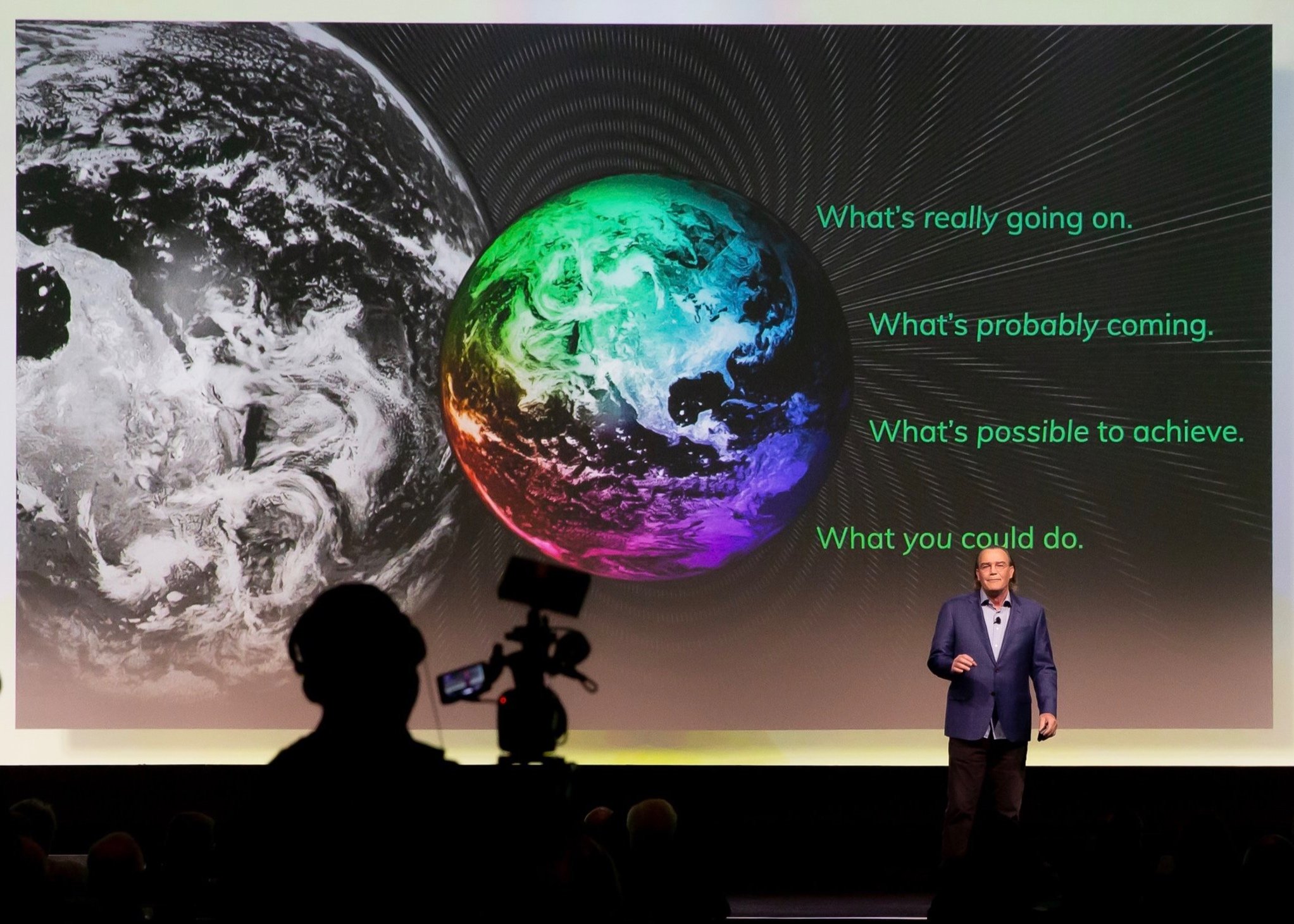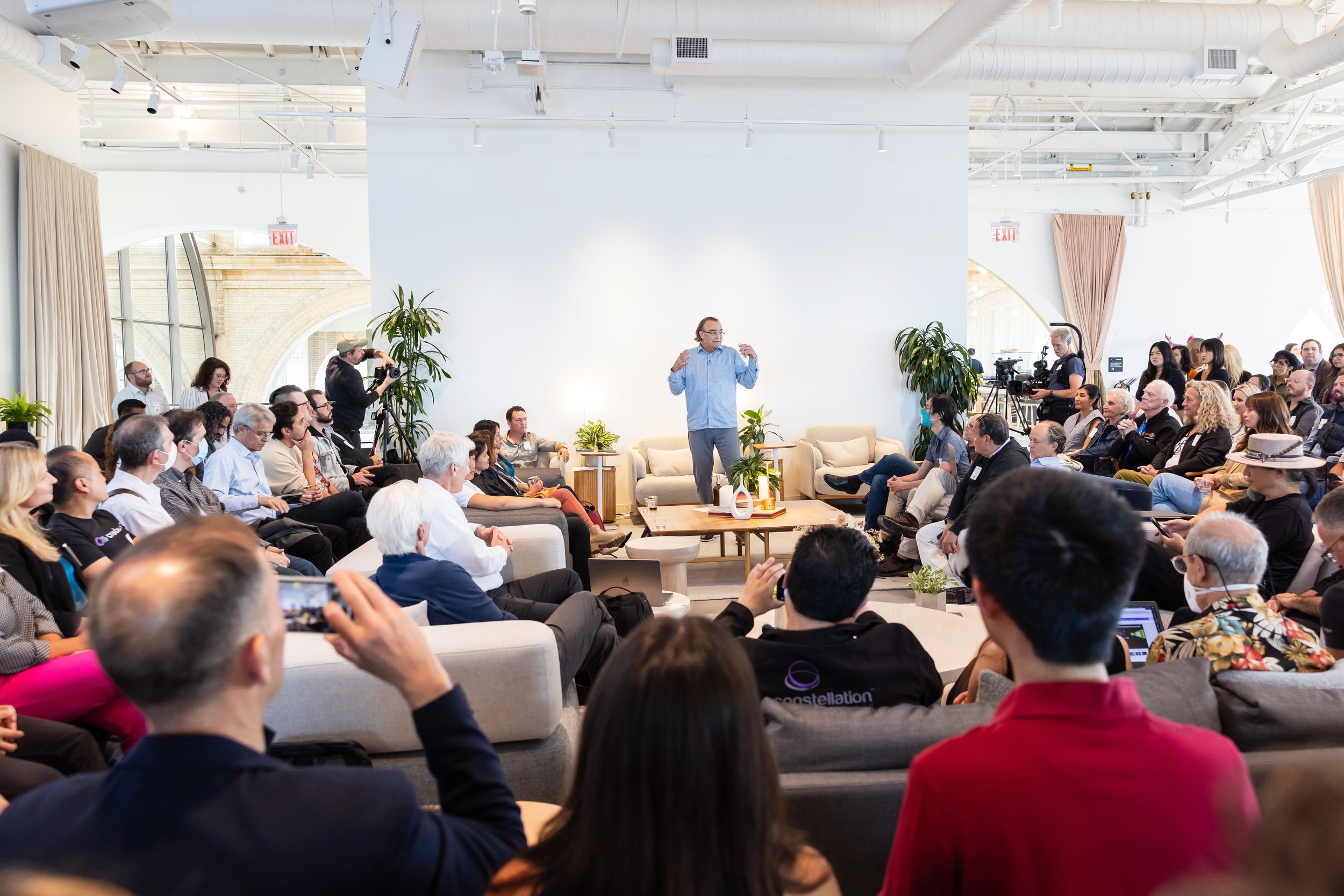
About Reinvent Futures
Reinvent Futures is a company that helps others better understand the future by providing strategic foresight advice to senior leaders who must navigate the arrival of transformative technologies like Generative AI and the many fundamental system changes of the 2020s.
We do this partly by convening top innovators from a wide variety of fields impacting the future in physical gatherings to explore the key questions of our times, including the four questions above: what’s really going on now, what’s probably coming in the next 10 years, what’s possible to achieve in the next 25 years, and what you could do.
We also create media that can scale off these elite gatherings and help spread the insights and ideas that emerge. We’re on a mission to do our part to help reinvent systems and bring about a better future for all.
About Peter Leyden
Our founder Peter Leyden has spent his entire career in pursuit of the constantly evolving answers to those four questions above: what’s really going on, what’s probably coming, what’s possible to achieve, and what we should do now.
Leyden moved to San Francisco at the beginning of the digital revolution to work with the founders of WIRED and figure out what’s probably coming. He then learned the futures business with some of the key pioneers in strategic foresight.
Over the last 25 years he has since built up an extraordinary network of technologists, entrepreneurs, innovators and creatives throughout Silicon Valley and the region.
Through all this Leyden has become a thought leader on the future and an expert on new technologies — regularly giving keynote talks and writing influential books and articles.
He founded Reinvent Futures as the best way to help others become more prescient and effective as we head into what will be a transformative decade and what could be the beginning of a new era of great progress.
Convening Remarkable Innovators
How does Reinvent Futures come up with answers to those four key questions: what’s really going on, what’s probably coming, what’s possible to achieve, and what we should do?
We have one line of business that convenes remarkable innovators into various gatherings to help figure out the future and deepen our collective understanding of what to do right now.
We convene what we call the A team: top innovators and creatives, technologists and entrepreneurs, intellectuals and academics, scientists and strategists.
Some are world-class thought leaders, others up-and-coming next-generation founders and innovators, most are experts of some kind, but all have some valuable contribution to make from a wide range of fields impacting the future.
Advising in Strategic Foresight
Reinvent Futures has a second line of business where we take what we know and are constantly learning about those four questions and help senior leaders of companies and other organizations understand them as well.
We do advisory work in strategic foresight, the business term for helping leaders better understand the near-term future and evolve their strategies.
Most leaders, let alone most people, have no idea about how to think more rigorously or systematically about the future.
Reinvent Futures helps them do that in various ways: through tailored talks, strategy workshops, roundtable discussions, learning journeys, foresight coaching, and special projects.
Creating Media about the Future
Reinvent Futures has a third line of business in media creation that is more public facing. Much of what we do in our Convening work is exclusive by nature. There’s only so many people that can fit in a room. Most of our Advising work is private too.
Our mission is to help accelerate the many system changes that are necessary in the 2020s to move us toward a better world and help solve our many challenges like climate change.
So we are committed to capturing much of what we are learning and then Creating written syntheses and videos that can be more widely shared.
Our Event Series: The Great Progression
The Great Progression Series is our signature series of convenings that forms the core of what we are learning going forward, particularly focused on the world-historic technologies of Artificial Intelligence, Clean Energies and Bioengineering.
The event series starts with the frame that America and the world are heading into a decade of many fundamental system changes that could lay the foundation for a new era of great progress that will go a long way towards solving the many challenges of our time like climate change.
The series systematically takes a deep dive look at each of the fields that can expect to go through a transformation in the 2020s. We are particularly focused on how the latest advances in AI could supercharge great progress in each of these fields.
We then convene a meeting of the minds of up to 250 innovators to help us answer a key question for that night. We showcase up to a dozen of the most remarkable thought leaders in short 5-minute talks.
Watch the adjacent 5-minute video that gives a terrific overview of what we have already accomplished and where we will go next.
Our Media: Open to All
We are committed to capturing much of what we are learning in more exclusive events in San Francisco and then creating media that can be more widely shared.
We maintain The Great Progression Substack series that is free to all (go subscribe). Each major event is written up by our host and curator Peter Leyden in an essay that synthesizes the most important ideas that emerged and explains how they matter in the big picture. We also publish extended quotes from the short talks of some of the most remarkable speakers.
The larger convenings like in The Great Progression event series often are videoed as well and we then produce short videos, mostly of the 5-minute presentations.
You can see all the videos packaged in pieces published in Substack or watch on the Reinvent Futures YouTube channel.





